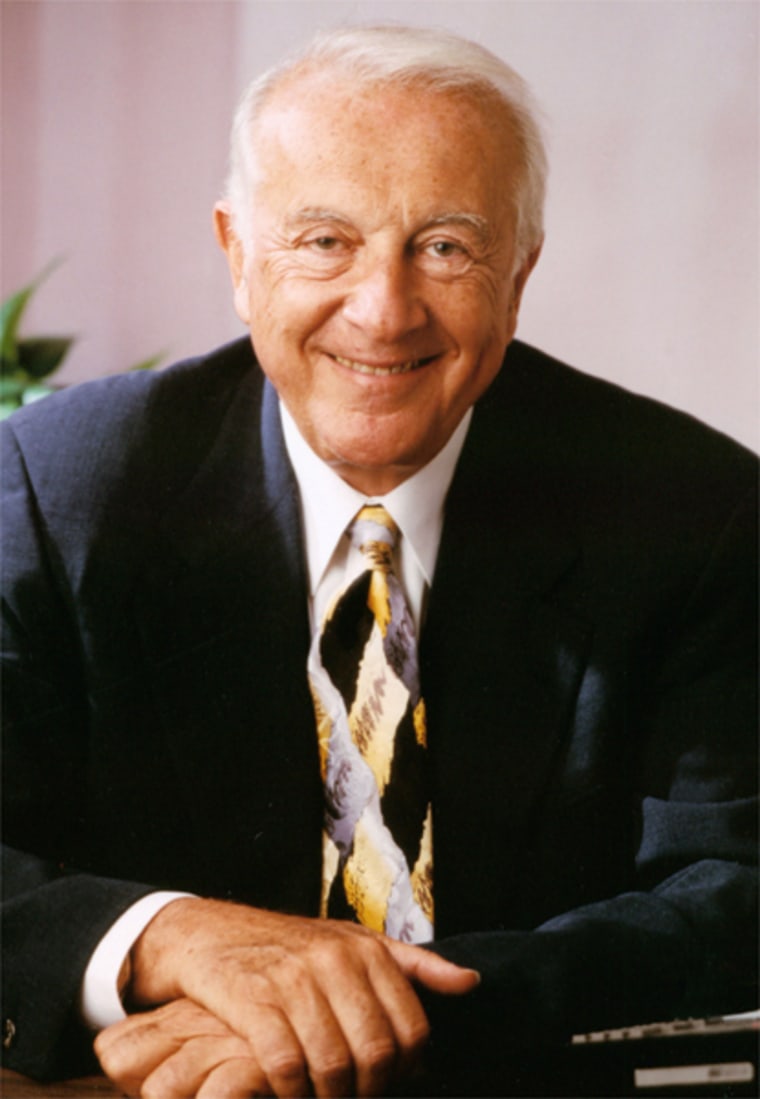The debate over Dr. Robert Atkins’ high-fat, low-carb diet flared posthumously Tuesday over news that Atkins himself weighed 258 pounds at his death — though the reasons for his bloated condition were immediately disputed.
A physicians group that is highly critical of the diet released details of a city medical examiner’s report filed after Atkins’ 2003 death which showed the 6-foot doctor was at a weight normally considered obese.
The group claimed the Atkins diet led to weight and heart troubles for its 72-year-old creator. But his allies countered that he had gained more than 60 pounds through fluid retention in the eight days he spent in a coma before dying last April.
“Critically ill patients, when sustained on fluids in the hospital, gain weight,” said Dr. Stuart Trager, chairman of the Atkins Physicians Council, a group affiliated with the Atkins diet empire. “He was grossly swollen, so much so that his family and associates barely recognized him.”
The medical examiner’s report also noted that Atkins had a history of heart trouble, including congestive heart failure and high blood pressure. The Wall Street Journal first reported on the records on Tuesday.
Result of viral infection?
The doctor’s heart troubles had been previously known publicly, and the council asserted Tuesday that they were a result of cardiomyopathy, or an enlarged heart, which it said stemmed from a viral infection, not diet. Trager said Atkins weighed 195 pounds when he was admitted after slipping on an icy street and hitting his head.
“We need to set the record straight. This is a man who managed his weight,” Trager said. “Isn’t it time to let this man rest in peace?”
Atkins was the author of the best-selling “Dr. Atkins’ New Diet Revolution,” which advocates meat, eggs and cheese and discourages bread, rice and fruit. His books sold 15 million copies and attracted millions of followers.
Physicians for Responsible Medicine, the group that released the report and promotes a vegetarian diet, acknowledged that fluid retention may have been responsible for some of Atkins’ weight gain, but probably not all of it. The group maintains that the Atkins diet poses weight and health risks to the millions who follow it.
A healthy 6-foot man weighing 258 pounds would normally qualify as obese, according to the Centers for Disease Control and Prevention. At 195 pounds, he would be considered overweight.
The medical examiner’s report was not based on an autopsy but on an external exam. Conditions such as congestive heart failure and high blood pressure would not be observed by the medical examiner in such a case, but would be drawn instead from previous doctors’ observations and records.
In April 2002, a year before he died, Atkins issued a statement saying he was recovering from cardiac arrest related to a heart infection he had suffered from “for a few years.” He said it was “in no way related to diet.”
One doctor not connected to the case said extensive weight gain can indeed occur in comatose patients, especially those with heart trouble like Atkins.
“It’s certainly possible that in an effort to try to resuscitate him they keep giving more and more fluids, and essentially he keeps them in the body,” said Dr. Robert Yanagisawa of Mount Sinai Hospital in New York.
For years nutrition experts and doctors have debated the Atkins diet, which allows up to two-thirds of calories from fat, or more than double the usual recommendation. Atkins argued that carbohydrates generate too much insulin, which makes people hungrier and encourages them to put on fat.
When Atkins’ book was first published in 1972, the medical mainstream was promoting a low-fat, high-carbohydrate diet. The American Medical Association labeled the Atkins’ diet “potentially dangerous” and Congress summoned him to Capitol Hill to defend the plan.
The Atkins diet recently gained renewed popularity after studies showed that people lost weight without compromising their health. The studies showed that Atkins dieters’ cardiovascular risk factors and overall cholesterol readings changed for the better.
Last month, the doctor’s widow, Veronica Atkins, demanded an apology from Mayor Michael Bloomberg after he called her late husband “fat.” She declined comment on Tuesday’s disclosure.
Ellen Borakove, a spokeswoman for the medical examiner, declined to comment on the report, which she said was erroneously released to a doctor in Nebraska who requested it and apparently gave it to the vegetarian group.
It was later discovered that the doctor was not “the treating physician” and should not have had access to the report. Borakove said her office planned to complain to Nebraska health officials.
The mayor said the report “should not have been released.”
